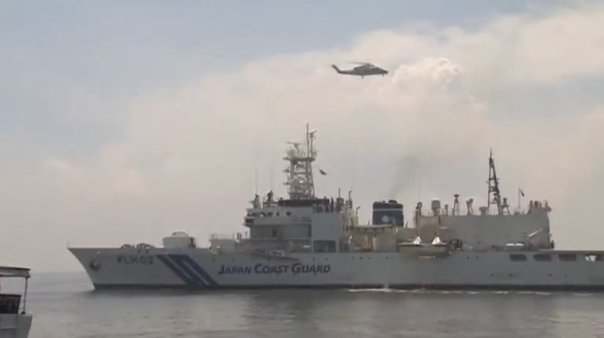
MANILA, Philippines (Reuters) — Philippines and Japan coastguards took part in joint drills in Manila Bay on Wednesday (July 13) as part of the efforts to improve maritime security in the region.
About 50 coastguard personnel from Japan and 15 from the Philippines held simulated rescue exercises aimed at combating piracy and armed robberies at sea.
Philippine coastguard spokesperson Armand Balilo told journalists the exercise was not part of territorial disputes in the South China Sea.
“The aim of this exercise was to enhance the interoperability of the units, enhance the skills of the participating organic personnel from both Japan and Philippine coastguards,” he said.
The exercise came a day after an international court in the Hague ruled that China has no historic title over the large swathes of the South China Sea and that it has breached the sovereign rights of the Philippines with its actions there.
Balilo said they have not received any instructions to beef up security in the South China Sea.
“We have not yet received any directive. For one thing on the ITCLOS, or the International Tribunal of the Sea, the government will be in charge and will command us from the armed service on what we will be doing,” he said.
The case, brought by the Philippines in 2013, hinges on the legal status of reefs, rocks and artificial islands in the Scarborough Shoal and Spratly Island Group.
The Philippines reacted cautiously to the ruling late on Tuesday, calling for “restraint and sobriety”.
Philippine President Rodrigo Duterte held a cabinet meeting after the ruling was announced, but no comment was made about what was discussed and the presidential palace cancelled a regular briefing on Wednesday.
The ruling is significant as it is the first time that a legal challenge has been brought in the dispute, which covers some of the world’s most promising oil and gas fields and vital fishing grounds.
The court has no power of enforcement, but a victory for the Philippines could spur Taiwan, Vietnam, Malaysia and Brunei to file similar cases.
China claims most of the energy-rich waters through which about $5 trillion in ship-borne trade passes every year. Neighbours Brunei, Malaysia, the Philippines, Taiwan and Vietnam also have claims.








